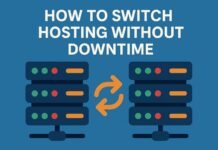Last Updated on November 5, 2025
Starting a small business in today’s digital age offers more opportunities than ever before—but it also comes with a big decision: which e-commerce platform should you choose to sell your products? Two of the most popular choices are Etsy and Shopify. This article will explore the crucial comparison of Etsy vs Shopify for small business, helping you decide which platform aligns best with your goals.
Whether you’re selling handmade jewelry, digital templates, vintage goods, or custom clothing, your platform choice can make a significant difference in how easily you attract customers, how much profit you keep, and how scalable your business can become.
Why This Comparison Matters
Both Etsy and Shopify are powerful tools for online sellers, but they serve very different purposes:
Etsy is a curated online marketplace focused on handmade, vintage, and craft items. It’s ideal for creatives who want to tap into an existing audience and start selling quickly without needing technical skills.
Shopify is a full-fledged e-commerce website builder. It gives you full control over your branding, design, and sales funnel, which is ideal for businesses aiming to scale and operate independently.
Many small business owners feel torn between the simplicity and built-in traffic of Etsy and the long-term growth potential and control that Shopify offers. This guide will break down everything you need to know: from ease of use, costs, features, and customization to marketing control and customer experience.
If you’re ready to turn your creative hustle into a sustainable income stream, this comparison of Etsy vs Shopify for small business will help you make the right decision for your future.
Platform Overview and Ease of Use
Choosing the right platform starts with understanding what each offers and how easy it is to get started. When comparing Etsy vs Shopify for small business, platform setup and ease of use are often top priorities—especially for solo entrepreneurs and new sellers with limited time and technical experience.
Etsy: A Marketplace with a Gentle Learning Curve
Etsy is a third-party marketplace specifically designed for handmade, vintage, custom, and craft-related products. Signing up is simple and fast—you can literally open your shop and start selling within an hour. There’s no need to worry about web hosting, domain names, or software installation. Etsy handles all of that for you.
Here’s why Etsy is especially beginner-friendly:
Streamlined Onboarding: You just create a shop, write a profile, and list your items.
Minimal Setup: No coding or designing skills required.
Built-In Traffic: With millions of monthly visitors, Etsy offers instant access to potential buyers.
Simplified Backend: The seller dashboard is intuitive, even for non-tech-savvy users.
However, Etsy does limit your control. You can’t fully brand your shop, customize your checkout, or change the look of your store beyond basic elements like a logo or banner. You’re one of many sellers on the platform—and Etsy controls how customers interact with your shop.
Shopify: Full Control with More Responsibility
Shopify, on the other hand, gives you the tools to build your own independent online store. You’ll need to handle more setup tasks, like choosing a domain name, customizing your website’s appearance, and selecting apps and payment processors. But this effort comes with significant rewards in flexibility and control.
Here’s what Shopify offers in terms of usability:
User-Friendly Store Builder: Drag-and-drop themes make designing easy.
Custom Domain & Branding: You can create a fully branded, professional-looking site.
Complete Checkout Control: Customize the entire customer experience.
24/7 Customer Support: Shopify offers excellent help via chat, email, and phone.
While Shopify takes more time to set up than Etsy, it allows you to build a unique, standalone presence online. You’re not competing in a marketplace—you own your space.
Which Is Easier for Beginners?
Choose Etsy if you want to get up and running fast, with no technical setup and immediate exposure to a built-in audience.
Choose Shopify if you’re willing to invest time learning how to build and manage a store in exchange for greater freedom and long-term growth potential.
In summary, when considering Etsy vs Shopify for small business, Etsy wins in simplicity and quick setup, while Shopify offers a deeper, customizable experience ideal for business owners serious about building a unique brand.
Costs and Fees Comparison
When evaluating Etsy vs Shopify for small business, one of the most important considerations is cost. Understanding each platform’s pricing model, transaction fees, and potential hidden expenses can help you make a financially smart decision from day one.
Etsy Pricing Structure: Low Barrier, Higher Transaction Fees
Etsy’s pricing is ideal for small businesses just starting out or operating with a limited budget. However, while upfront costs are low, ongoing fees can add up quickly, especially as your sales increase.
Here’s a breakdown of Etsy’s primary fees:
Listing Fee: $0.20 per item (renewable every four months or after the item sells).
Transaction Fee: 6.5% of the total order amount (including shipping and gift wrapping).
Payment Processing Fee: 3% + $0.25 per transaction (U.S.-based rates; varies by country).
Optional Advertising:
Etsy Ads (on-site PPC): You control the budget.
Offsite Ads: If you make over $10,000/year, Etsy charges 12-15% per sale through these ads.
Pros of Etsy’s Fee Structure:
No monthly subscription required.
Easy to calculate startup cost.
Ideal for occasional or hobby sellers.
Cons:
High fees per sale reduce profit margins.
Lack of control over ad fees if enrolled in Offsite Ads.
As your sales grow, you end up paying a higher percentage of revenue in fees.
Shopify Pricing Structure: Monthly Subscription, Lower Per-Sale Fees
Unlike Etsy, Shopify uses a subscription model. It charges a monthly fee regardless of how many products you list or sell. However, Shopify offers a more scalable solution with better profit potential over time.
Here’s a summary of Shopify’s standard plans:
| Plan | Monthly Fee | Online Credit Card Fees (US) | Transaction Fees (If not using Shopify Payments) |
|---|---|---|---|
| Basic Shopify | $39 | 2.9% + 30¢ | 2.0% |
| Shopify | $105 | 2.6% + 30¢ | 1.0% |
| Advanced Shopify | $399 | 2.4% + 30¢ | 0.5% |
Other potential costs include:
Themes: Free and paid ($0–$350).
Apps & Integrations: Many are free, but some require monthly subscriptions.
Domain Name: Usually $10–$20/year.
Pros of Shopify’s Fee Structure:
Predictable monthly costs.
No listing or renewal fees.
Lower transaction fees for high-volume sellers.
More control over expenses.
Cons:
Higher upfront cost for new sellers.
Can get expensive if you rely heavily on paid apps.
Which Is More Cost-Effective?
Etsy is better for low-volume sellers who want minimal risk and upfront costs. But its transaction-based fees can become costly for higher-volume shops.
Shopify is more cost-efficient for growing businesses with consistent sales. While the initial investment is higher, lower per-sale fees and ownership over your brand and customer base make it a strong long-term value.
When analyzing Etsy vs Shopify for small business, think beyond the price tag. Consider how often you plan to sell, how much control you want, and how you intend to grow.
Customization, Features, and Scalability
In the world of e-commerce, having control over your store’s look, functionality, and growth potential is a major factor in long-term success. In this section, we’ll compare Etsy vs Shopify for small business in terms of customization, available features, and how each platform supports scaling your operations as your business grows.
Etsy: Simplicity with Some Limitations
Etsy is designed to be simple and uniform. Every shop follows the same layout structure, which helps maintain consistency across the platform. While this is helpful for shoppers navigating different stores, it limits how much sellers can tailor their storefront.
Etsy Customization Options:
Add shop banner, logo, and profile image.
Write a custom bio and store policies.
Customize product descriptions and pricing.
Tag products for search visibility.
But that’s about where it ends. You can’t control the layout, fonts, or checkout process. There’s no way to add upsells, cross-sells, or personalized product recommendations unless Etsy rolls out those features platform-wide.
Etsy Features:
Basic analytics and shop stats.
Built-in shipping and discount tools.
Access to Etsy Ads for paid visibility.
Limited integrations (like with social media or accounting tools).
While these tools are enough to get started, they’re not designed for complex e-commerce strategies or large catalogs.
Shopify: Deep Customization and Full Control
With Shopify, you’re not confined to a marketplace template. Instead, you get your own fully customizable online store that you can design to match your brand exactly.
Shopify Customization Options:
Choose from free or premium themes (customizable).
Modify layouts, colors, fonts, and design elements.
Create unique landing pages and navigation menus.
Add custom domains, blogs, and about pages.
Shopify also allows total control over your checkout process, email notifications, and customer experience. You can create a polished, professional storefront that builds trust and enhances conversions.
Shopify Features:
Inventory management, product variants, and bulk editing.
SEO optimization for individual pages and products.
Powerful analytics and reporting dashboards.
Abandoned cart recovery and discount engines.
Over 6,000 apps in the Shopify App Store to extend functionality.
Integration with Facebook, Instagram, Google Shopping, Amazon, and more.
As your business grows, Shopify grows with you. Whether you need multi-currency support, advanced tax management, or international shipping, it’s all possible with the right plan or app.
Scalability: Who Wins?
Etsy is fantastic for smaller shops with a handful of products and simple workflows. It’s less suited for high-volume sellers or those wanting to grow beyond Etsy’s niche audience.
Shopify is built for growth. Whether you’re expanding your catalog, growing your email list, or scaling to international markets, Shopify provides the tools you need to go from solo startup to e-commerce powerhouse.
When comparing Etsy vs Shopify for small business, Shopify clearly wins in customization and scalability. Etsy is a great launchpad, but Shopify is your vehicle for long-term, sustainable growth.
Marketing, SEO, and Traffic Control
Marketing and visibility are vital for any online business. Without customers, even the best products won’t sell. In this section, we’ll explore the differences between Etsy vs Shopify for small business when it comes to marketing tools, SEO control, and traffic generation.
Etsy: Built-In Audience, Limited Control
One of Etsy’s biggest advantages is its massive built-in audience. With over 90 million active buyers, Etsy offers a ready-made customer base. As a seller, you get instant exposure to people already searching for handmade, vintage, and unique goods.
Etsy Marketing Tools:
Etsy Search: Your listings appear in Etsy search results based on keywords, relevance, and customer reviews.
Etsy Ads: Run pay-per-click ads within the Etsy platform to boost visibility.
Offsite Ads: Etsy promotes your products on Google, Facebook, and other platforms. You only pay when a sale is made through those ads.
Coupons and Sales: Offer discounts or promotions directly through your Etsy dashboard.
Etsy Updates: Email updates are sent to past customers who’ve favorited your shop or items.
While these tools are useful, you don’t have full control over how or when you communicate with customers. You also can’t collect email addresses to build your own mailing list—Etsy owns the customer relationship.
SEO on Etsy:
Limited to listing titles, tags, and product descriptions.
You can’t optimize URLs or meta descriptions.
Rankings are influenced by Etsy’s algorithm, which you can’t control.
Shopify: Full Marketing and SEO Ownership
Shopify requires you to bring your own traffic, but that also means you get to keep the traffic—and the customer data. It’s a platform for building your brand and growing a loyal audience.
Shopify Marketing Tools:
Built-in Blog: Share updates, improve SEO, and attract organic traffic.
Email Marketing Integration: Use tools like Klaviyo, Mailchimp, or Shopify Email to run newsletters and drip campaigns.
Social Media Integration: Sell directly on Instagram, Facebook, TikTok, and Pinterest.
Abandoned Cart Recovery: Automatically follow up with customers who leave items in their carts.
Affiliate & Referral Apps: Run affiliate programs and referral incentives.
You can also connect Google Analytics, Facebook Pixel, and other tracking tools to fine-tune your campaigns and retarget potential buyers.
SEO on Shopify:
Full control over product URLs, meta titles, and descriptions.
Ability to use alt tags for images.
Clean, customizable site architecture for better indexing.
Faster site speeds with dedicated hosting, which Google favors.
Who Has Better Traffic and SEO Potential?
Etsy gives you immediate access to shoppers but limits your long-term marketing efforts.
Shopify takes more effort up front but gives you full control of your traffic, brand, and customer relationships.
If you want to build a business that survives algorithm changes and allows for advanced marketing tactics, Shopify is the better long-term play.
When comparing Etsy vs Shopify for small business in terms of traffic and SEO, Etsy is perfect for short-term visibility, while Shopify excels in long-term strategy and branding power.
Final Verdict – Etsy vs Shopify for Small Business
After exploring setup, fees, customization, features, and marketing in this in-depth comparison, it’s time to answer the ultimate question: which platform wins when it comes to Etsy vs Shopify for small business?
Etsy: The Ideal Launchpad for Beginners
Etsy shines as a beginner-friendly marketplace that offers immediate access to a large, targeted audience. With its low upfront costs and easy setup, it’s perfect for small business owners who:
Sell handmade, vintage, or niche products.
Want to test their products without investing heavily.
Prefer a simple platform with minimal technical setup.
Don’t want to worry about driving their own traffic at the beginning.
However, Etsy has limitations in branding, customer data ownership, customization, and scalability. It’s not designed for full business independence but rather as a selling space within a larger ecosystem.
Shopify: The Growth Engine for Serious Entrepreneurs
Shopify, on the other hand, is the go-to platform for small businesses ready to build a brand and scale over time. It’s ideal for sellers who:
Want full control over their website and branding.
Plan to grow their product line or enter new markets.
Are comfortable (or willing to learn) marketing and traffic generation.
Value ownership of customer relationships and data.
Though it requires a larger upfront investment and more effort to set up, Shopify gives you the tools to build a long-term, profitable business with fewer limits on growth.
Use Both for the Best of Both Worlds?
Many successful entrepreneurs start on Etsy and then transition to Shopify as they grow. Some even run both simultaneously:
Use Etsy to validate product ideas and take advantage of built-in traffic.
Use Shopify to build an independent brand, capture customer emails, and expand through social media and SEO.
This hybrid approach allows small businesses to leverage Etsy’s audience while gradually building their own e-commerce infrastructure on Shopify.
Etsy vs Shopify for Small Business: The Final Takeaway
Ultimately, the choice between Etsy vs Shopify for small business comes down to your goals, budget, and level of control you want. If you need quick setup and instant exposure, Etsy is a smart start. If you’re focused on branding, scalability, and long-term profitability, Shopify is the superior choice.
Whichever path you choose, what matters most is starting. Both platforms offer incredible opportunities for creative entrepreneurs and product-based businesses. Analyze your goals, take action, and adapt as your business grows.
FAQs: Etsy vs Shopify for Small Business
1. Which is better for beginners—Etsy or Shopify?
Etsy is generally better for beginners because it requires no web design or technical setup. You can list your products and start selling within minutes, and you get instant access to a large marketplace of buyers. Shopify requires more setup but offers greater control and branding opportunities in the long run.
2. Can I use both Etsy and Shopify at the same time?
Yes, many small business owners use both platforms. Etsy can help you gain exposure and early sales, while Shopify allows you to build your own brand and website. You can even use apps to integrate your Etsy inventory into Shopify for centralized management.
3. Does Etsy or Shopify have lower fees?
Etsy has lower upfront costs, but higher per-transaction fees that can add up over time. Shopify has a fixed monthly cost but lower fees per sale, making it more cost-effective for high-volume sellers.
4. Which platform is better for branding?
Shopify is the clear winner for branding. It allows you to customize your store’s appearance, use a custom domain, and control the entire customer experience—something that’s not possible on Etsy.
5. Who controls the customer relationship—Etsy or Shopify?
With Shopify, you own your customer data and email list, which allows for better marketing and customer retention. On Etsy, Etsy owns the customer relationship, and your ability to market to past buyers is limited.
6. Which is better for SEO—Etsy or Shopify?
Shopify offers more advanced SEO tools, including custom URLs, meta tags, and alt text. Etsy has internal search optimization, but you have limited control over how your listings appear in external search engines like Google.
7. Is Shopify worth the cost for a small business?
If you’re serious about building a long-term, scalable brand, Shopify is worth the investment. The tools, customization, and control it offers can significantly increase your potential for profit and growth.

